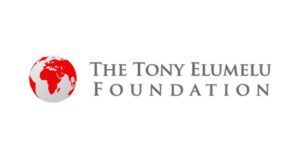
UNICEF targets 5,000 Katsina youths to effectively manage plastic waste
The United Nations Children Funds (UNICEF), says it will engage about 5,000 youths across Katsina State, as part of efforts to transform plastic waste into wealth.
Mrs Stella Terver, UNICEF, Water Sanitation and Hygiene (WASH) Programme Officer, Kano Field Office, disclosed this to the newsmen on Saturday in Katsina.
Terver explained that UNICEF was sensitising the youths on how they could become entrepreneurs, and be able to innovate.
“Maybe they can use these plastic wastes to see if they can use them in making some household items, such as interlocks and other things.
“So, we just wanted them to think out of the box to exercise their energy in thinking and making the environment friendly for all humans, especially children.
“With that, the first engagement we had was an inception meeting, where we got to understand the youth groups that exist in Katsina, their various missions, visions and interests, to see whether it rhymes with climate change.
“So, we were able to find at least 30 youth groups that are into climate change activities across the state,” she said.
Terver said the state ministry of youths would now be an umbrella that would bring the youths together and manage them, “because we don’t deal with individuals, but government, and institutions.”
According to her, the ministry will be managing the youths, while UNICEF will support them in building their capacity, so that with the skills they acquire, “they will be able to plant trees, nurture them, and we support them in monitoring the progress.
“For plastic waste like I said, we want to see if we can have entrepreneurs among the youths that will be interested in making a business out of it.
“UNICEF is also engaging 30 youth groups, focusing on the fight against climate change impact on the environment as well as open defecation.”
She said that recently, UNICEF had engaged the youths in an interactive session to educate them on how to protect their environment from the risks of climate change and plastic waste management.
The UNICEF WASH officer further stressed the significance of creating a conducive environment through tree planting and nurturing plants to maturity.
“The engagement will make the environment to be resilient to issues around heat waves, droughts, flooding, and a whole lots of other challenges.
“For example, Katsina is in the Sahel region, if you could recall over the time, especially recently, there has been extreme cold, rain, hit, and flooding, and almost everything is extreme.
“UNICEF engaging these youths is about making them key into the initiative of making the environment climate resilient like I said earlier,” she noted.
Terver added that they engaged the youths on tree planting, “not only the planting, but sensitising and supporting them to take ownership of the trees to nurture them to maturity.”
According to Terver, looking at the plastic waste management, when UNICEF sensitises the youths, it also advocates that they should be agents of climate change.
“For example, you will see all these plastic wastes all over, if you get to the farm, they are there too.
“You know, they are non degradable, it will not allow the farm to yield very well, therefore, it could lead to food scarcity and lots more.
“It also blocks the drainages. So, what we are trying to do is to sensitise the youths and motivate them to be agents of plastic waste management, whereby, they can be entrepreneurs,
“They can gather all these plastic wastes and sell it to recyclers in tonnes. And we are also looking at sensitising them to see if they can think of other innovation,” she assured.




